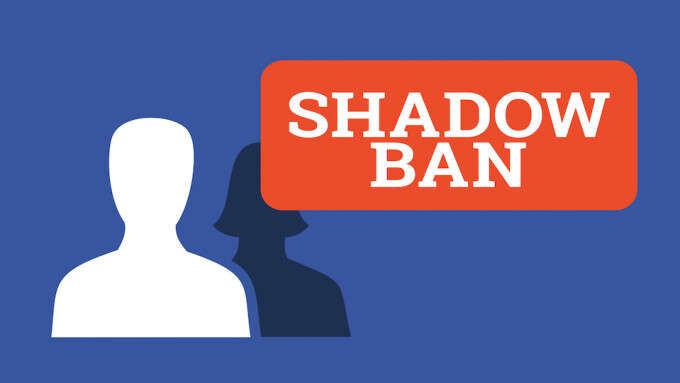WASHINGTON — The Atlantic has published an article analyzing the phenomenon of “shadowbanning," including its deployment against sex workers by social media platforms, labeling the practice “Big Tech’s big problem.”
The article, penned by The Atlantic’s Gabriel Nicholas, highlighted the discrepancy between social media companies denying they are engaged in deliberate content suppression, and the overwhelming testimony of adult performers, sex workers and others confirming the widespread practice.
“The result is a lack of trust in the internet,” the Atlantic noted.
Sex workers “have been accusing social-media companies of shadowbanning since time immemorial, saying that the platforms hide their content from hashtags, disable their ability to post comments and prevent their posts from appearing in feeds,” wrote Nicholas, a resident research fellow at the Center for Democracy & Technology and a joint fellow at the NYU Information Law Institute and the NYU Center for Cybersecurity.
The Atlantic defined “shadowban” as “the wide range of ways platforms may remove or reduce the visibility of [a user's] content without telling them.”
Nicholas cited research by social-media scholar and pole-dancing instructor Carolina Are, who published
“an academic-journal article chronicling how Instagram quietly and seemingly systematically hides pole-dancing content from its hashtags’ ‘Recent’ tab and ’Explore’ pages.”
Ultimately, the article concluded, “shadowbanning fosters paranoia, erodes trust in social media and hurts all online discourse. It lends credence to techno-libertarians who seek to undermine the practice of content moderation altogether, such as those who flock to alt-right social networks like Gab, or Elon Musk and his vision of making Twitter his free-speech maximalist playground.”
If platforms and their owners are going to shadowban, Nicholas suggests, they “should publicize the circumstances in which they do, and they should limit those circumstances to instances when users are trying to find and exploit weaknesses in their content-moderation systems.”
“Removing this outer layer of secrecy,” he concluded, “may help users feel less often like platforms are out to get them,” even if they belong to a group, like sex workers, who believe they are being “disproportionately shadowbanned.”
To read “Shadowbanning is Big Tech’s Big Problem,” visit TheAtlantic.com.






